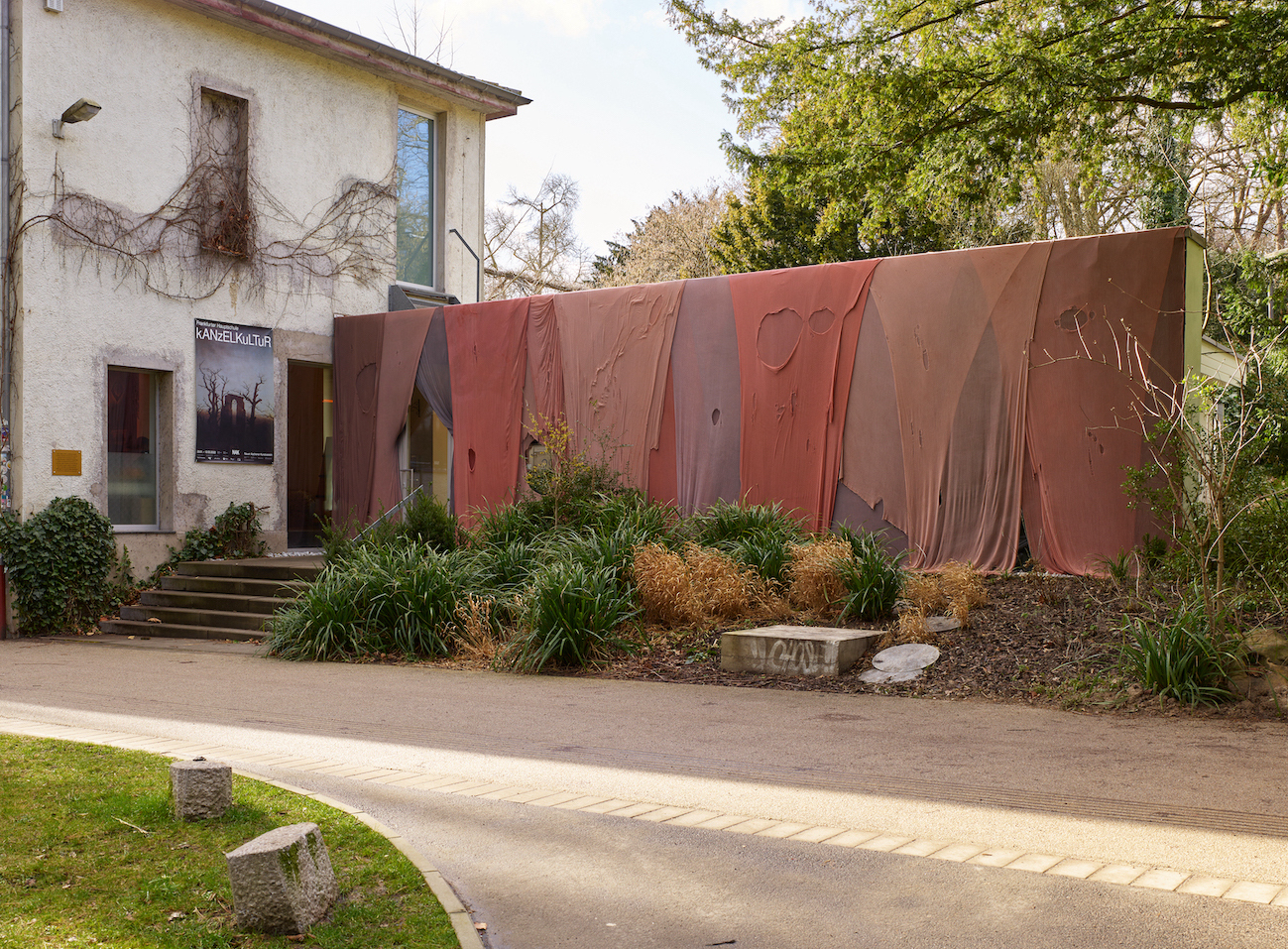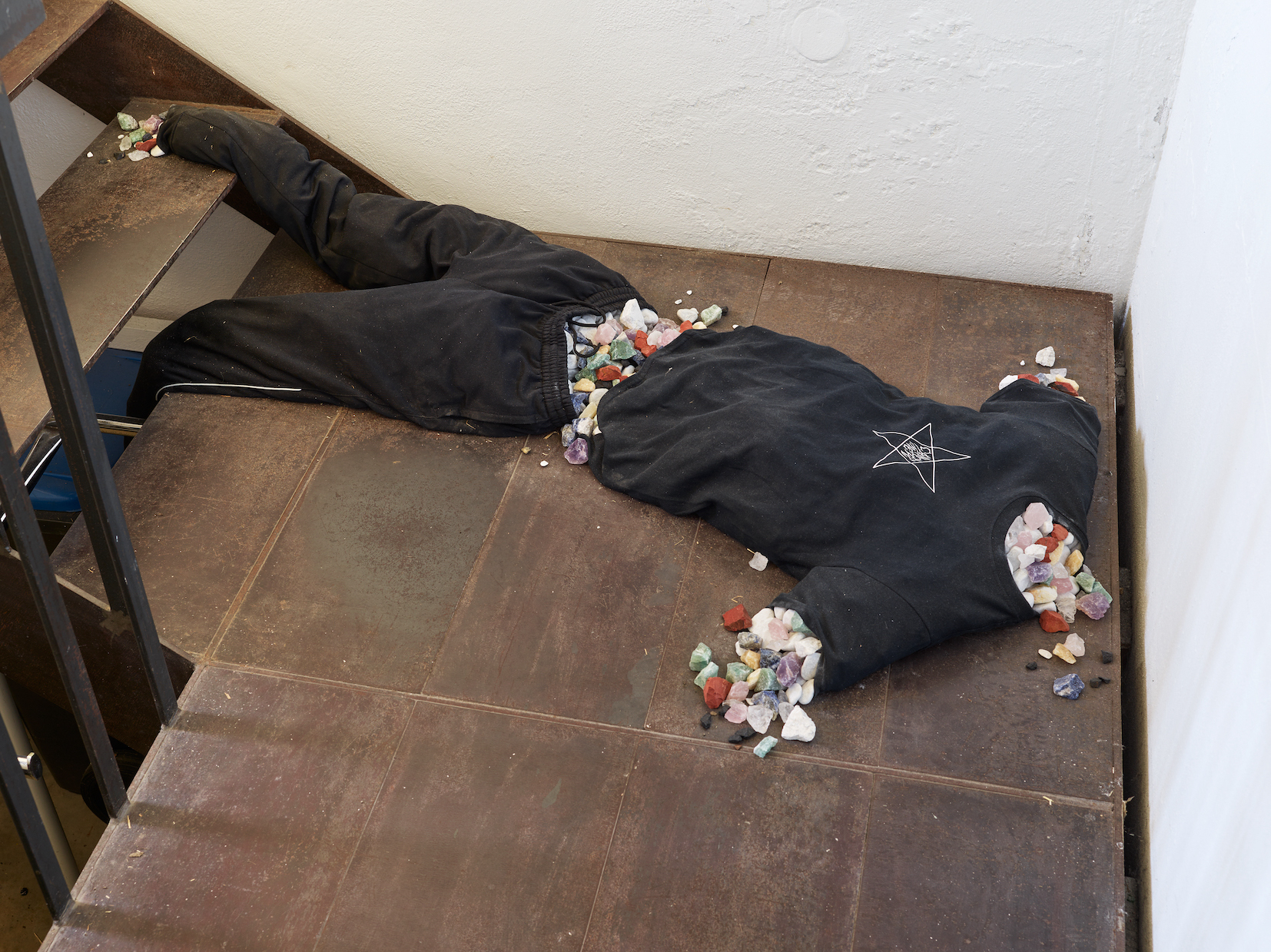Archive
2022
KubaParis
kANzELKuLTuR



















Location
NAK Neuer Aachener KunstvereinDate
21.01 –12.03.2022Curator
Maurice FunkenPhotography
Simon VogelSubheadline
From January 22nd to March 12th, 2022, NAK Neuer Aachener Kunstverein is presenting kANzELKuLTuR, the first institutional solo exhibition by the Frankfurter Hauptschule collective.Text
Extinguish the romantic straw fires?! With the cool oil of cancel culture?!
By Diedrich Diederichsen
The perpetual complaint that there is a "cancel culture" is mainly a polemical discourse vehicle that has been circulated by the cultural (and also the political) right in order to generate itself as a victim and thus make itself inaccessible to criticism. By constructing the fact that a power-possessing - conformist - left makes life difficult for a powerless right that considers itself nonconformist or pretends to be nonconformist in order to feed on the good reputation of nonconformism among leftists, and sometimes even destroys its public existence, just because the people in question once supported a racist politician or long ago abused an underage groupie.
The term "cancel culture" is thus a successor of the term "political correctness" that circulated from about 1990 onwards, which was also never claimed by those who allegedly acted in its name (feminists, leftists, civil rights activists, anti-racists, people who do not want to resign oneself to Ableism, anti-Semitism or trans- and homophobia). And as with "political correctness" more than 25 years ago, with "cancel culture" today it's worth looking at what would happen if the phenomenon described actually existed. What could it be, or what real problem could those who engage in this polemic actually mean? Would it even make sense in the end to adopt the term of vilification as the vilified?
That one "cancels" a person, usually not a real personally known person, but a functionally medial person, that is, declares him or her no longer relevant or satisfactory within a culturally social framework, is in the culture in which persons stand for positions and attitudes an everyday part of the otherwise highly valued process in this culture called development. I haven't read children's books since I was 12, I now read "Narcissus and Goldmund" by Herrmann Hesse; since I discovered Jack Kerouac, James Baldwin, and Allen Ginsberg, you can hunt me down with Hesse; since I've known Joyce and Marx and Marcuse, you can hunt me down with that beatnik shit; since I got to know Maggie Nelson and the other autofiction writers like McKenzie Wark and Paul B. Preciado, you can hunt me down with these all-knowing white cis male master thinkers - Et cetera. In this way, the impulse to leave something behind and to experience this as a moment of liberation, to connect a realization with a detachment, gets into our biographical emotional toolkit and from there also naturally to where we experience something like social progress. We experience social progress namely also about the fact that for a certain social group, to which we belong or which we observe, certain ideas, persons, positions, yes even forms of behavior become impossible: obsolete, obscene, immoral, politically wrong - or however justified. We experience that intellectual cognition has consequences. This becoming wrong, this passing away of something that was either normal or even ideal, is part of the molecular structure of every political mobilization, but also of the dynamics of refinement and development of discourse level and density of understanding. In the course of such developments, of course, devastating errors and injustices happen again and again and quite inevitably. The group dynamics of political and political-cultural social connections are known to be problematic, but it is difficult to imagine a course without also deplorable effects. In a world in which, unfortunately, also economically and thus existentially, people stand up for positions, one cannot help but also distance oneself from them - certainly in the pleasant, non-threatening sense of the perfectly correct circumstance that ideas have consequences, sometimes negative ones. In the long run, of course, we all benefit from standing on the shoulders of those who have canceled (or have been canceled by the other side).
A problem arises, however, when the sense of progress and development generated by adopting and leaving behind positions and their representatives no longer encounters any real progress outside the discursive world in which they arose; when the - in a broader sense - left has to retreat to discourse successes. Which is not a problem because there is a clear ontological opposition between discursive world and real world, but public sphere structures that are more or less connected to consequence-generating neighboring systems. The right-wing fight against canceling and correctness, after all, tries to cut these connections, sometimes with success. It can happen that leftists let themselves be made stupid by these disconnected successes and now try to compensate for these world losses with the so gained feelings of progress by an increased vehemence of (often only internal) communication about these successes (indignation!). This is how one can get used to overreactions.
But this would only be a strategic problem of left discourse defense (with fine moral and aesthetic notes in the exit) against the continuous propaganda bombardment of Welt and NZZ and the likes, not a principal problem of compiling lists of people whose names one can no longer hear. The other, perhaps more serious problem is the very notion of progress applied here. How can I talk about, work toward, etc., something getting better if I don't know or can't name a form of getting better into which I can classify these improvements. When progress has been so compromised by the capitalist replacement of social progress by technical progress and by the colonialist destruction of colonized world (indeed of the whole planet) in the name of a European idea of progress that it is no longer any good, at least under its traditional name, and in general seems to have contaminated any historical-philosophical perspective.
Already since the end of the Second World War, the Shoah and the atomic bomb, this has been a well-known and urgent problem. An adherence to undialectical primitive conceptions of progress (which, after all, could be encountered again and again in various modernisms) has been countered in the history of art of the 20th century by a - mostly not unqueer - surrealism in the broadest sense. This queer surrealism in the broadest sense disturbed the monosensical potential violence of the notion of progress by contributing to an expanded notion of improvement that went beyond economy and organization, that could not be easily broken down to pragmatic utility, that contributed to delaying too rapid violent realization, and that opened up (or even rehabilitated) other physical, mental, aesthetic domains.
This surrealism is always another, is always contributed by others and, when it is good, attaches itself disturbingly in solidarity to a too simple political liberation. But this "surrealism" is, according to the diagnosis of the Frankfurter Hauptschule, about to fall to a romanticism now no longer connected to historical developments, which, in Germany and the German-speaking world anyway always in regressive waiting and lurking position, currently realizes itself anew and expansively in practices of young artists, positions itself as a running away from its own historicity - of course with full steam into the past (which, especially in the German-speaking world, is rarely a good one - but that would not help either). It thus becomes a German artistic version of the global plague of neo-traditionalism, fortunately still in its embryonic stage. The Frankfurter Hauptschule, however, and one has to have that much patience, does not meet this with acts of cancellation, but with a sarcastic, affectionate mimesis of the preferred forms and materials of its young colleagues - in order to perhaps make this Romanticism, which, like all romantic impulses, can be said to have stopped halfway to a political critique of reason and to have barricaded itself in its escapist grottoes and vaults, something that can be used as a new surrealism. And as justified (and as invigorating) a cheerful canceling can be, one must unfortunately also teach everyone everything over and over again from scratch, otherwise one never learns sustainably where oneself has been wrong all along and deserves to be canceled.
Diedrich Diederichsen